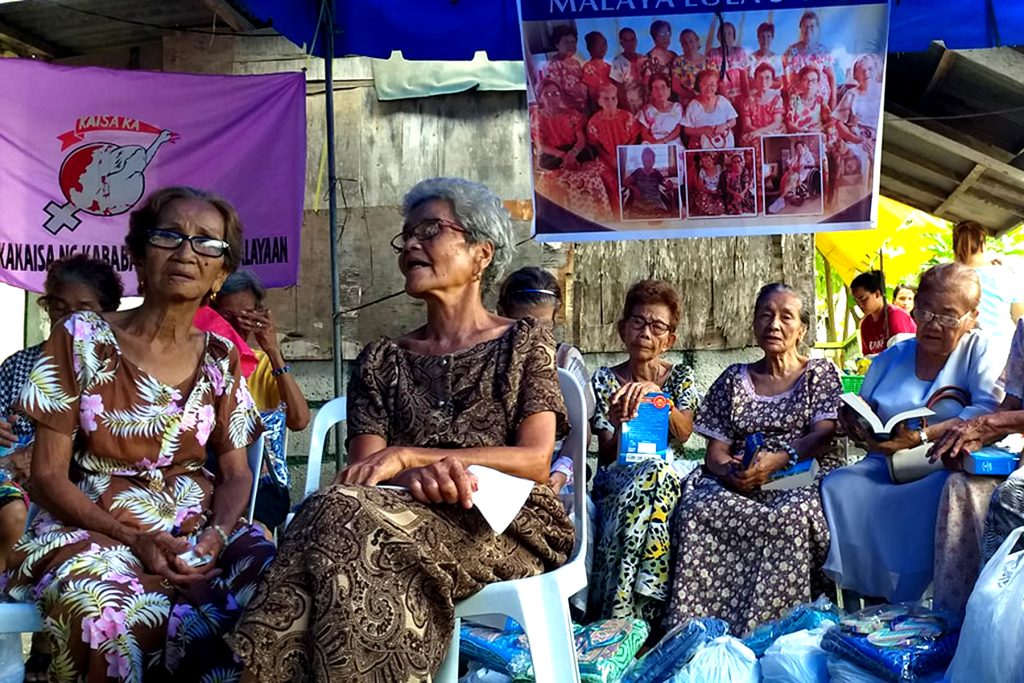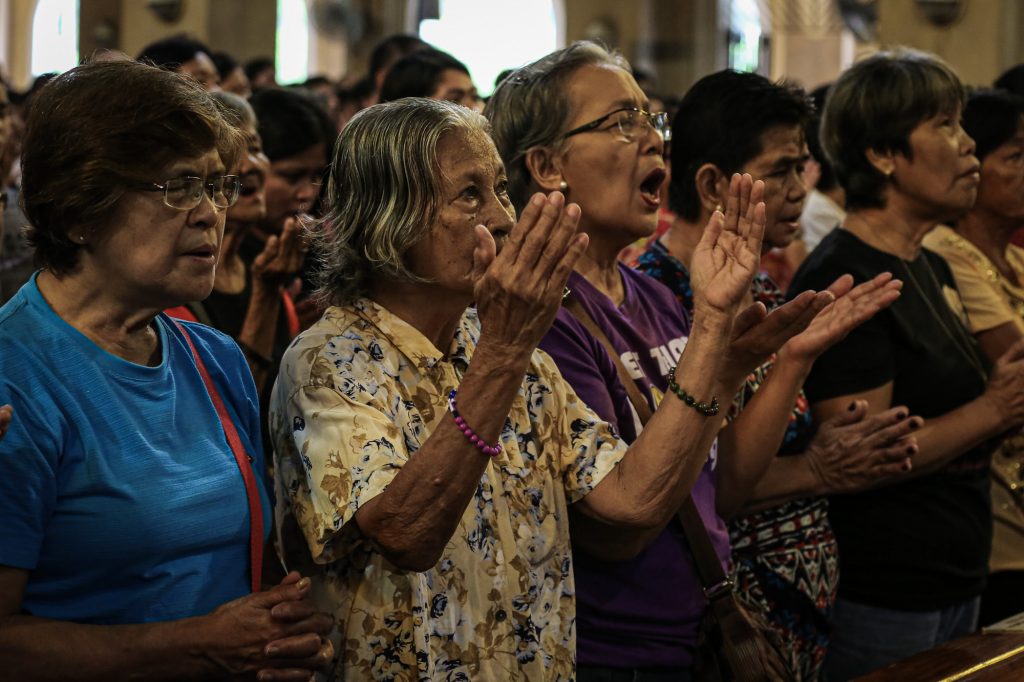
Lola Isabelita Viduya died at age of 89 due to pneumonia on November 23 this year, on the anniversary of the “Mapanique Siege” in 1944.
Lola Isabelita was leader of the “Malaya Lolas (Free Grandmothers),” women who became victims of military sexual violence and slavery during the Japanese occupation of the Philippines.
Born on Nov. 1, 1932, Isabelita was 12 years old when the Imperial Japanese Army attacked the village of Mapaniqui in Candaba, Pampanga, on Nov. 23, 1944.
The village was suspected to be a stronghold of the Filipino resistance group Hukbo ng Bayan Laban sa Hapon.
The Japanese soldiers bombed the community, looted and torched houses, and mutilated, tortured, and killed villagers.
About a hundred women and girls with ages from 13 to early 20s were ordered to walk from Mapaniqui to a house, known as Bahay na Pula (Red House) for its color, in San Ildefonso, Bulacan province.
It was in the house, which was demolished in recent years, where Japanese soldiers locked the women who were later repeatedly raped, beaten, and abused.
As a result of the actions of the soldiers, the survivors of the wartime female slavery system spent their lives in misery, having endured physical injuries, pain and disability, and mental and emotional suffering.
Isabelita was one of the lead petitioners in the case Vinuya vs Executive Secretary (G.R. No. 162230, April 28, 2010) filed by the Malaya Lolas.
The women claimed that since 1998, they have approached the government through the Justice department, Foreign Affairs department, and the Office of the Solicitor General to request assistance in filing a claim against Japanese officials and military officers who ordered the establishment of the “comfort women” stations in the Philippines.
Philippine officials, however, declined to assist the women and took the position that the individual claims of the “comfort women” for compensation had already been fully satisfied by Japan’s compliance with the Peace Treaty with the Philippines.

The Philippine Supreme Court also dismissed the case, noting that it is not within its power to order the Executive Department to take up the Malaya Lolas’ cause. Theirs is only the power to urge and exhort the Executive Department to take up the Lolas’ cause.
The Court affirmed that “rape, sexual slavery, torture, and sexual violence are morally reprehensible as well as legally prohibited under contemporary international law,” but stated that “the practice of states does not yet support the present existence of an obligation to prosecute international crimes.”
“Of course, we greatly sympathize with the cause of petitioners, and we cannot begin to comprehend the unimaginable horror they underwent at the hands of the Japanese soldiers,” said the Court.
“We are also deeply concerned that, in apparent contravention of fundamental principles of law, the petitioners appear to be without a remedy to challenge those that have offended them before appropriate fora,” it added.
“Needless to say, our government should take the lead in protecting its citizens against violation of their fundamental human rights,” said the Supreme Court.
It has been 76 years since the war ended on Aug. 15, 1945, and yet the Japanese government refuses to recognize its official accountability to the victims of sex slavery.
About 200,000 women from Korea, China, Burma, New Guinea, and the Philippines were held in captivity, and many thousands more were raped as part of one of the largest operations of sexual violence in modern history.
It was only in the late 1990s that the Filipino Lolas, or grandmothers, came out as part of the groups Lila Filipina and Malaya Lolas to tell the world about the inhuman practice of the Japanese during the war.
I personally met Lola Isabelita in July 2019 during the medical mission in Mapaniqui by the group Flowers for Lolas, an alliance supporting the campaign on the issue of World War II victims of sexual violence and slavery.
“Rape is still rape whether it was done for days, for months or for years. The effect is the same. It destroyed our bodies, our sense of self. We lived in shame for years,” said Isabelita.
She lamented that the Filipino women received no compensation from the Asian Women’s Fund because they were not considered “comfort women” because they were not held or abused over an extended period.
Isabelita and the other Filipino women victims of sexual slavery and violence died without receiving a formal apology and legal compensation from Japan.
Justice has not been given to women like Isabelita. Their fight for unequivocal public apology, accurate historical inclusion, and just compensation continues up to this day.
Dennis R. Gorecho heads the seafarers’ division of the Sapalo Velez Bundang Bulilan law offices. For comments, email info@sapalovelez.com, or call 09175025808 or 09088665786
Source: Licas Philippines
0 Comments